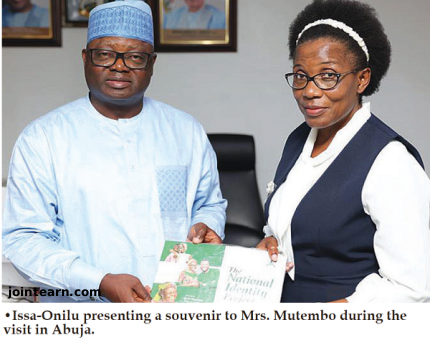
Zambia has expressed interest in studying Nigeria’s National Values Charter, the foundation of the proposed Nigerian Identity Project, which was previously approved by the Federal Executive Council (FEC).
This development emerged during the second meeting between officials of Nigeria’s National Orientation Agency (NOA), led by Director General Lanre Issa-Onilu, and the Zambian High Commission, led by Deputy High Commissioner Jenipher Mutembo, in Abuja.
Issa-Onilu provided an overview of NOA’s operational structure, highlighting the agency’s extensive reach:
“The agency is one of the largest in Nigeria, with 818 offices across all 774 local government areas, 36 states, and the Federal Capital Territory (FCT). We are rooted in grassroots communities and remain a vital communication channel between the government and citizens.”
According to a statement by NOA’s Deputy Director, Paul Odenyi, the Director General explained that the agency not only communicates government policies, programmes, and projects to citizens but also gathers grassroots feedback to inform decision-making. This feedback is submitted to the relevant government institutions and the parliament, ensuring citizen voices influence policy.
Issa-Onilu emphasized that leadership in Africa should extend beyond political figures to include civil, traditional, and moral leaders, who play a key role in shaping national values.
In response, Deputy High Commissioner Mutembo commended NOA for its grassroots presence and structured approach, noting the potential of Nigeria’s model as a framework for Zambia. She said:
“Your presence in all local governments is powerful. Zambia sees great value in observing and learning from your operational methodology for national reorientation and civic education.”
She further stressed the importance of shared African values and the influence of youth and media, particularly Nigeria’s creative industry, on shaping perceptions of morality, success, and identity:
“Our young people are learning and forming ideas from the content they consume, sometimes based on misinformation. As leaders, we must ensure that what reaches the public promotes unity, innovation, dignity, and pride in African heritage.”
This engagement reflects growing regional collaboration in promoting civic education and national values, with Zambia exploring ways to adapt Nigeria’s experience for its own development.


Leave a Reply